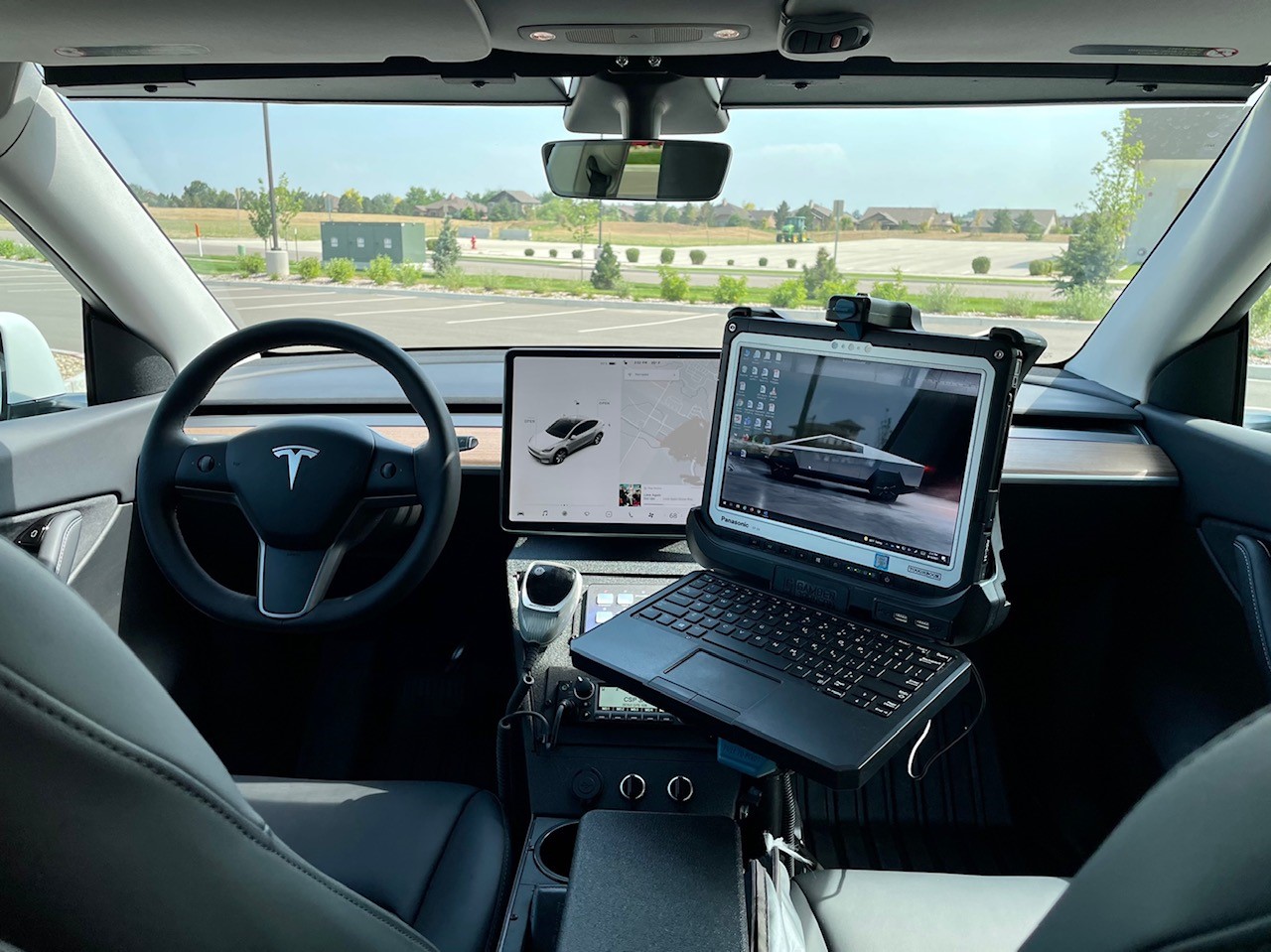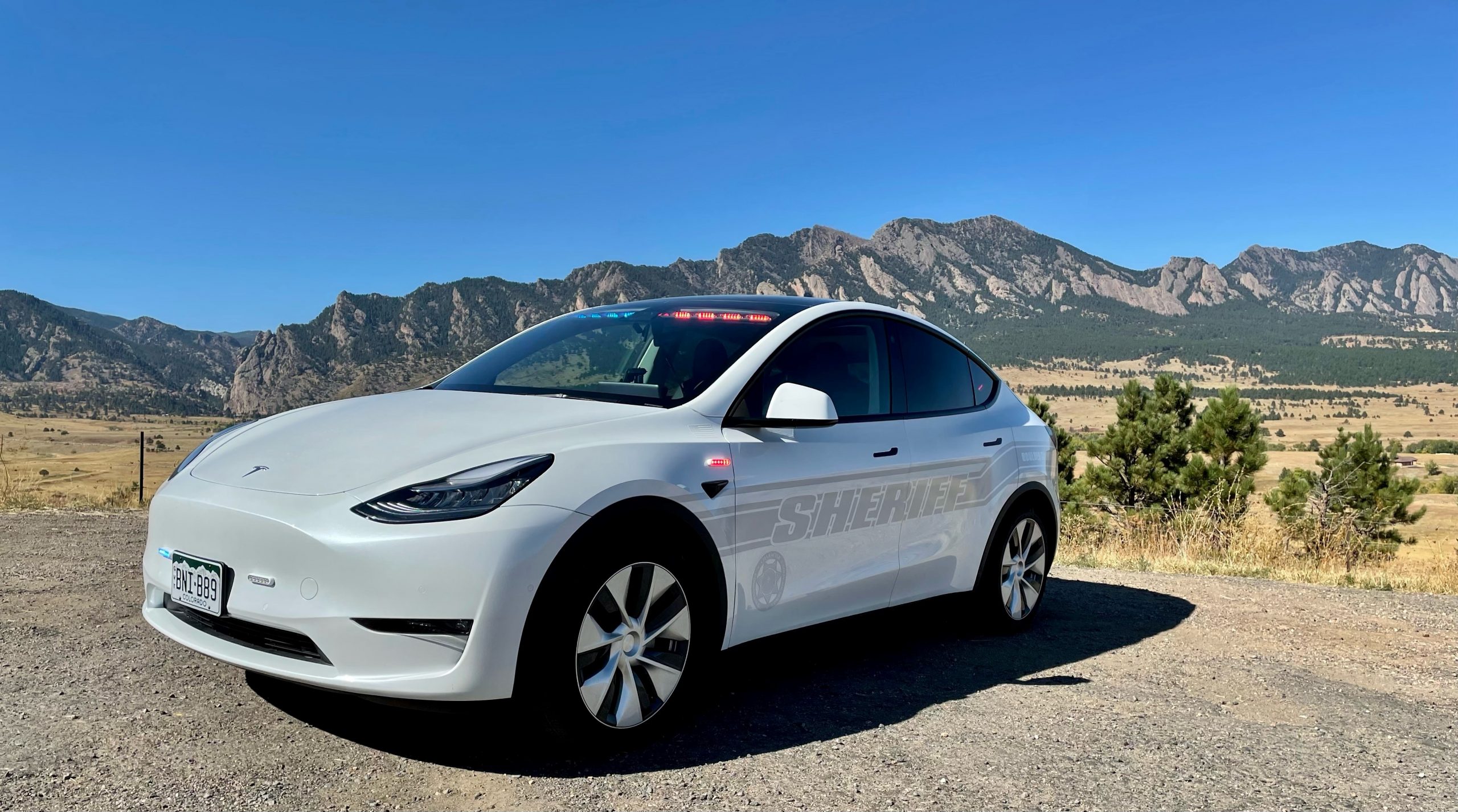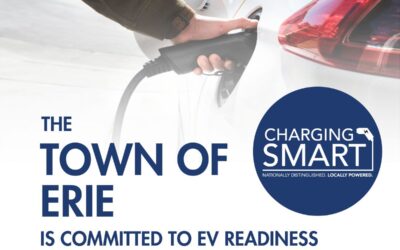Many police departments around the country are looking to electrify their fleets. However, it could take some initiative to start that process. We spoke with Sergeant Clay Leak of the Boulder County Sheriff’s Department about their electric vehicle pilot.
Starting the EV Pilot Program
Sergeant Leak was initially drawn to electric vehicles for their environmental, cost, and convenience benefits. After driving a personal EV (Tesla Model 3), he explored the possibility of using EVs for police work. While Sergeant Leak researched many types of EVs, he found that many models did not fit the needs of the Boulder County Sheriff’s Department. Range, ground clearance, and cargo space were key factors and the manufacturer’s EV experience and reliability. Before pitching to his supervisors, Sergeant Leak conducted research by pulling 10 years of fleet data and calculating average fuel costs, fuel economy, and maintenance costs, and comparing them against a worst-case estimate from Tesla. Leak also communicated with other police departments around the country that had already adopted Teslas into their fleets. After gathering all the information, Sergeant Leak presented it to the Sheriff Department’s Executive Staff. Following approval from his superiors, the Executive Staff pitched Sergeant Leak’s presentation to the Boulder County Commissioners. The County Commissioners approved the proposal. In October 2020, The Boulder County Sheriff’s Department purchased a Tesla Model Y – Long Range.
Operating and Buildout Experience
The Sheriff’s Department used the same builder as its gas-powered vehicles to outfit the Model Y for police work. Some aspects of the car had to be modified, such as constructing a new center console to house radio controls. Tesla mechanics worked with their builder to teach them the nuts and bolts of the EV. The Tesla Model Y was ready for duty in the summer of 2021. Initially, the department used the EV for traffic supervision and supporting tasks. Later, they started using the vehicle for traffic enforcement as well. According to Sergeant Leak, testing is going very well. The car is fast, quiet, and reliable. The suspension is a little more sporty than other police vehicles, and you feel bumps a little more. The police EV averages about 100 to 150 miles per day. While Sergeant Leak has yet to drive in heavy snow, the car handles well on icy mountain roads and cold.


Charging Experience
Sergeant Leak usually charges the car with a level 2 charger at his home. The charger charges at about 7-10 kWh or about 20-25 miles of range per hour. He sets the charger to max out at 90% battery overnight to keep the battery healthy. Sergeant Leak normally makes it home with about 40-45% battery life left if he doesn’t charge during the workday. Many Boulder County facilities, including the Sheriff’s Office, have level 2 chargers. Powering to 90% after a full day of driving takes between 2.5-5.5 hours. Sergeant Leak uses the software, TeslaFi, to track his charging. At $50 per year, Leak gets detailed data about the car, such as driving routes, efficiency, and location-based charge tracking. The software keeps track of when he charges at home, and Sergeant Leak exports those results into a Microsoft Excel file. He then gives the file and a copy of his electric bill to the County for reimbursement. Leak says he has averaged $35-45 per month for home charging in the past few months.
Operating Costs
So far, the Boulder County Sheriff’s Department has put 6,074 miles on the Tesla. This translates to 1,498 kWh of electricity or $139 in fueling costs. If one of their current non-hybrid Ford Explorers traveled the same distance (at 16 MPG and $2.78 per/gal), fuel would cost $1,055. The Tesla had its first maintenance visit where all they had to do was balance and rotate the tires and refill the windshield washer fluid. The lack of an internal combustions engine means no oil change!
Public Engagement
Leak says the EV has been an effective public engagement tool. Sergeant Leak says, “The car is a huge conversation starter, and every single day, I’m getting double-takes, big smiles, and thumbs up. I have taken it to several community events.” Leak has posted videos of the EV and has gotten thousands of hits on LinkedIn. In addition, many public safety officers and fleet managers worldwide have reached out to him to ask about his experience.
Advice
Sergeant Leak’s advice to interested Police and Public Safety Departments is that you do not need to reinvent the wheel. Many departments have begun electrifying their fleets and are happy to offer advice and share their experience. In addition, many non-profit organizations, such as Drive Clean Colorado, have already done the research and are willing to offer their expertise. Finally, Leak says you do not have to commit to buying new EVs in bulk. It’s good to pilot with just a single vehicle to learn if a particular model works best for your department. However, Leak states, “It’s always better to be planning ahead for the future than to be playing catchup later on.”





